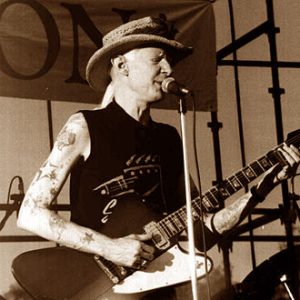You Better Cut That Out
John Lee “Sonny Boy” Williamson
“Sonny Boy” Williamson I
This recording was made in Chicago on November 12, 1947 with John Lee “Sonny Boy” Williamson (harmonica and vocals), Blind John Davis (piano), Big Bill Broonzy (guitar), Ransom Knowling (string bass), and Judge Riley (drums).
John Lee “Sonny Boy” Williamson was so popular that by the on set of the 1940s another blues harp player, Alex “Rice” Miller, from Mississippi, began also using the name Sonny Boy Williamson. John Lee is said to have objected to this, though no legal action took place, possibly due to the fact that Miller did not release any records during Williamson’s lifetime, and that Williamson played mainly around the Chicago area, while Miller seldom ventured beyond the Mississippi Delta region until after Williamson’s death.
Williamson recorded prolifically both as a bandleader and a sideman over the entire course of his career, mainly for the Bluebird record label. Before Bluebird moved to Chicago, where it eventually became part of RCA Records, many early sessions took place at the Leland Tower, a hotel in Aurora, Illinois. The top-floor nightclub at the Leland, known as “The Sky Club”, was used for live big band broadcasts on a local radio station, was utilized during off-hours as a recording studio for Williamson’s early sessions, as well as those of other Bluebird artists.
His final recording session took place in Chicago in December 1947, backing Big Joe Williams. On June 1, 1948, John Lee Williamson was killed in a robbery on Chicago’s South Side, as he walked home from a performance at The Plantation Club at 31st St. and Giles Ave., a tavern just a block and a half away from his home at 3226 S. Giles. Williamson’s final words are reported to have been “Lord have mercy.”
Sonny Boy’s legacy has been somewhat overshadowed in the post-war blues era by the popularity of the musician who appropriated his name, Rice Miller, who after Williamson’s death went on to record many popular blues songs for Chicago’s Checker Records label and others, and toured Europe several times during the ‘blues revival’ in the early 1960s.
Really The Blues is sponsored by Jazz on the Tube
Click here to Support US

